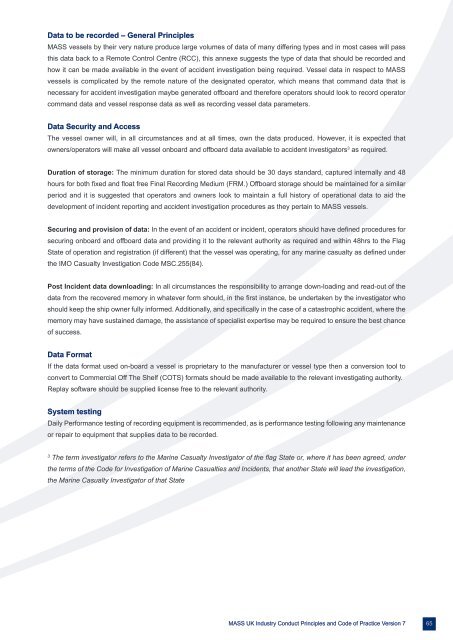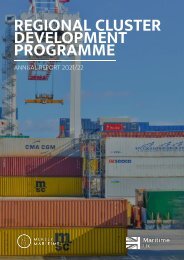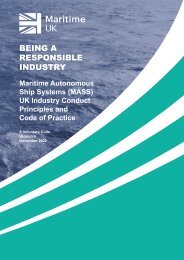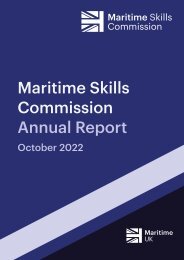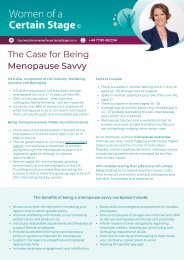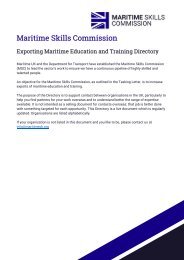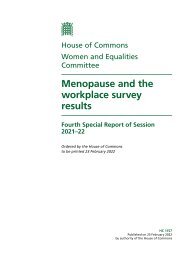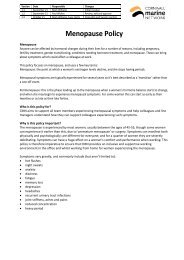COP_2023_V7_pages
You also want an ePaper? Increase the reach of your titles
YUMPU automatically turns print PDFs into web optimized ePapers that Google loves.
Data to be recorded – General Principles<br />
MASS vessels by their very nature produce large volumes of data of many differing types and in most cases will pass<br />
this data back to a Remote Control Centre (RCC), this annexe suggests the type of data that should be recorded and<br />
how it can be made available in the event of accident investigation being required. Vessel data in respect to MASS<br />
vessels is complicated by the remote nature of the designated operator, which means that command data that is<br />
necessary for accident investigation maybe generated offboard and therefore operators should look to record operator<br />
command data and vessel response data as well as recording vessel data parameters.<br />
Data Security and Access<br />
The vessel owner will, in all circumstances and at all times, own the data produced. However, it is expected that<br />
owners/operators will make all vessel onboard and offboard data available to accident investigators 3 as required.<br />
Duration of storage: The minimum duration for stored data should be 30 days standard, captured internally and 48<br />
hours for both fixed and float free Final Recording Medium (FRM.) Offboard storage should be maintained for a similar<br />
period and it is suggested that operators and owners look to maintain a full history of operational data to aid the<br />
development of incident reporting and accident investigation procedures as they pertain to MASS vessels.<br />
Securing and provision of data: In the event of an accident or incident, operators should have defined procedures for<br />
securing onboard and offboard data and providing it to the relevant authority as required and within 48hrs to the Flag<br />
State of operation and registration (if different) that the vessel was operating, for any marine casualty as defined under<br />
the IMO Casualty Investigation Code MSC.255(84).<br />
Post Incident data downloading: In all circumstances the responsibility to arrange down-loading and read-out of the<br />
data from the recovered memory in whatever form should, in the first instance, be undertaken by the investigator who<br />
should keep the ship owner fully informed. Additionally, and specifically in the case of a catastrophic accident, where the<br />
memory may have sustained damage, the assistance of specialist expertise may be required to ensure the best chance<br />
of success.<br />
Data Format<br />
If the data format used on-board a vessel is proprietary to the manufacturer or vessel type then a conversion tool to<br />
convert to Commercial Off The Shelf (COTS) formats should be made available to the relevant investigating authority.<br />
Replay software should be supplied license free to the relevant authority.<br />
System testing<br />
Daily Performance testing of recording equipment is recommended, as is performance testing following any maintenance<br />
or repair to equipment that supplies data to be recorded.<br />
3<br />
The term investigator refers to the Marine Casualty Investigator of the flag State or, where it has been agreed, under<br />
the terms of the Code for Investigation of Marine Casualties and Incidents, that another State will lead the investigation,<br />
the Marine Casualty Investigator of that State<br />
MASS UK Industry Conduct Principles and Code of Practice Version 7<br />
65


